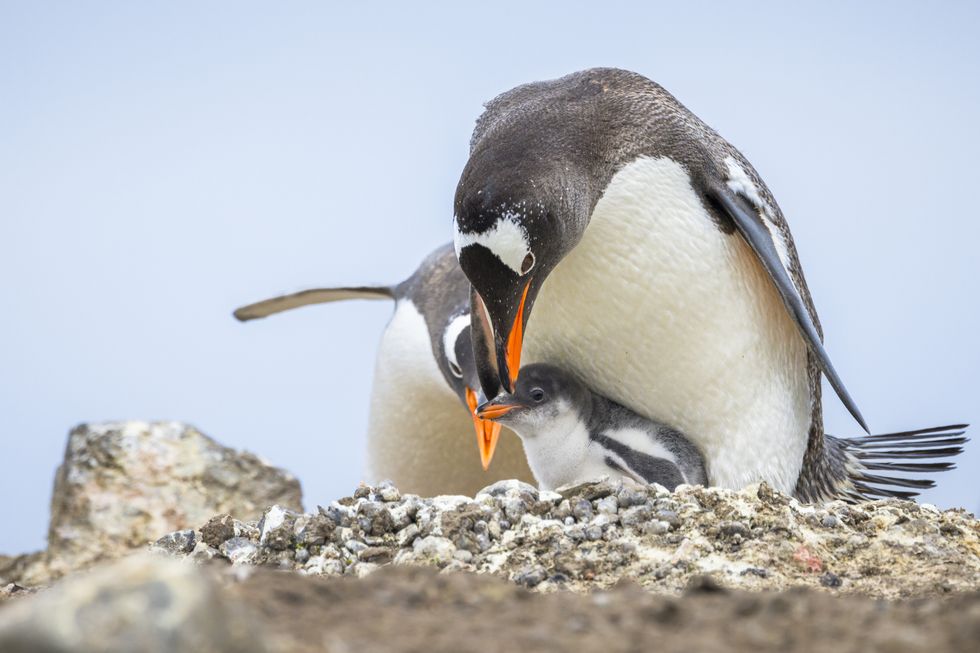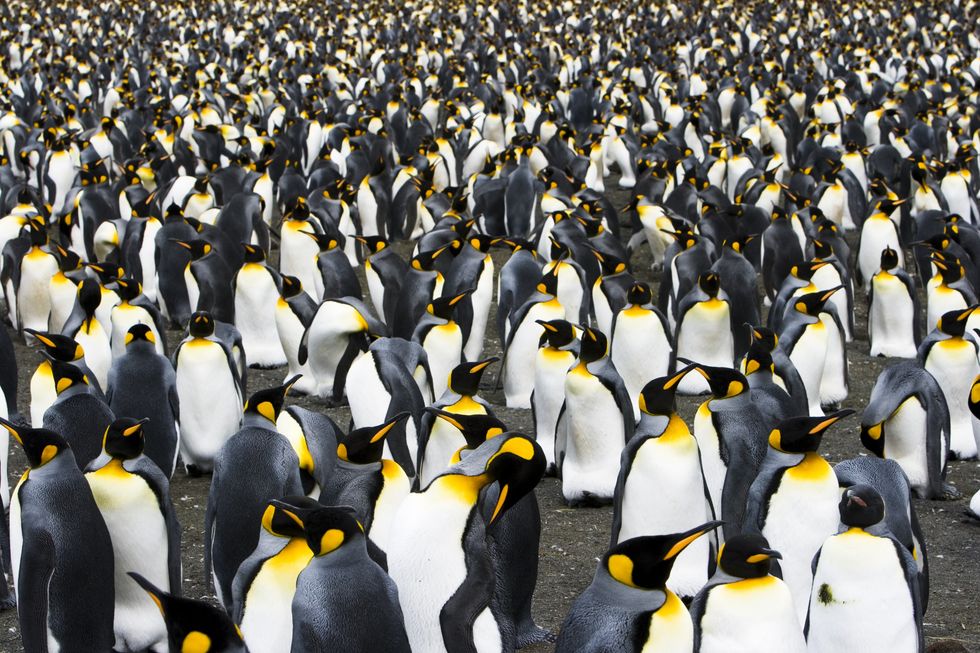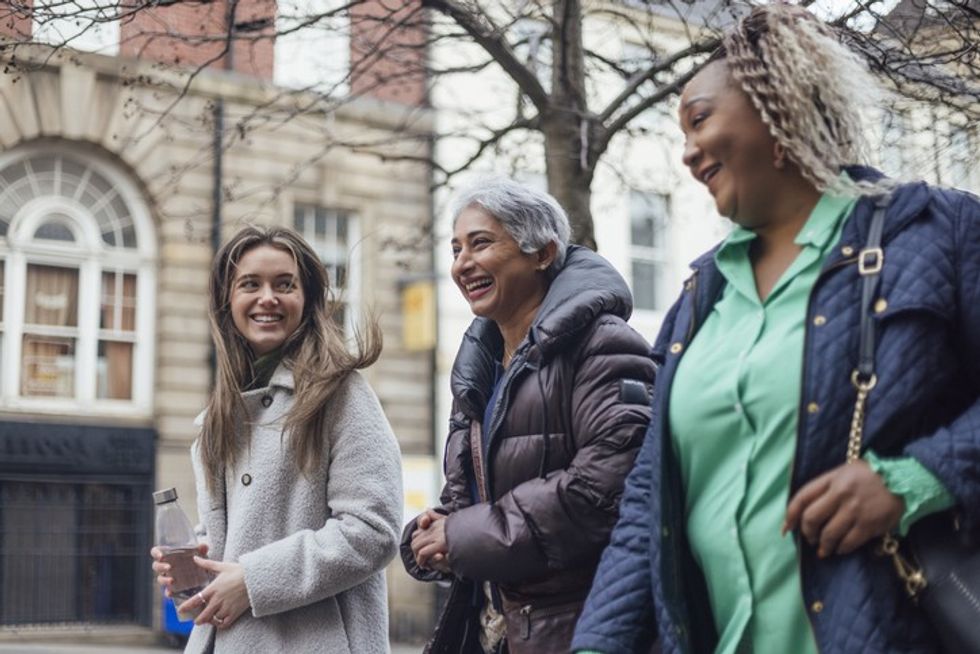AN A TO Z GUIDE TO KEEP MIND AND BODY FIT DURING THE COVID-19 LOCKDOWN
by MITA MISTRY
BEING indoors because of the coronavirus will likely lead to less activity, both physical and mental, which can have detrimental effects on health.
If the lockdown goes on for a prolonged period, then this will not only make isolation more difficult but could lead to long-term complications. That is why it’s important to take good care of yourself at home and there is plenty that can be done to help keep you healthy during self-isolation.
With that in mind, Eastern Eye presents an in depth A to Z of self-care, while stuck indoors.
A is for Affirmations: Saying empowering words out loud can give an instant boost and an important reminder. Saying a simple statement like, “I can do it” has been proven to help people get over obstacles created by the mind, and many other affirmations are a good way to start the day.
B is for Bravery: Showing courage through adverse times will help you in multiple ways and give hope to those around you. Being brave isn’t just about facing challenges like the current crisis we are in, but also asking for help if needed.
C is for Candles: Light sweet smelling candles will help create a calming aura at home. You can also team it up with a homemade facemask and soothing music. Having some me-time will lower stress levels and make you more productive.
D is for Diet: Good mental and physical wellbeing starts with a good balanced diet, especially if you are stuck indoors and less active. Cook fresh foods and use the extra time indoors to learn new healthy recipes. There are also super foods that can help you like green tea, red pepper, walnuts, okra, bananas, dark chocolate, avocados, spinach, chickpeas, coffee. The ultimate is water and you should look to drink two litres a day.
E is for Exercise: Being indoors doesn’t mean you stop exercising and the need to be active is even more important. There is plenty to do for all abilities when inside, ranging from yoga and simply walking around the house to using your body weight for challenging exercises like press ups or burpees. Being physically active keeps the blood flowing, bones nimble and mind healthy.
F is for Fresh air: It is important to get fresh air and some natural sunlight whenever possible, even during self-isolation. Sit in the garden, go to the balcony or stand by an open window and watch the world go by.
G is for Gratitude: Complain less and be thankful more often. During difficult times it is easy to forget about the blessings we have. Writing down all the wonderful things you are grateful for, like friends, family, health, memories, food on the table and even possessions, will remind you there is more good than bad.
H is for Hygiene: Being indoors and away from others may mean you take care of yourself less. It is especially important to keep the hygiene level high during this coronavirus pandemic. Wash your hands frequently and check in with yourself regularly to see you are keeping up the daily cleanliness level.
I is for Inhale: Remember to breathe! Controlling your breath is a great way to manage stress or anxiety and will help in activities like exercise or demanding tasks. There are plenty of guided breathing exercises available online.
J is for Journal: Writing down thoughts can help your mental well-being in multiple ways. Whether you want to let go of any negativity, document your journey or express any creativity, write it down, and being indoors alone gives you extra time to do that.
K is for Kindness: Be kind to others, but also to yourself. Forgive yourself for any past mistakes, learn from them and focus on the present. Being in the moment and looking ahead to the future will lessen worry, make challenges manageable and lower any stress/sadness levels.
L is for Laughter: The simple act of smiling even if you don’t feel happy can elevate your mood because you are releasing a happy hormone. Whether it is laughing with friends online or watching a comedy on TV, keep the laughter levels high and you will fly through the tough times.
M is for Meditation: It has been scientifically proven that meditating reduces stress, controls anxiety, enhances self-awareness, promotes emotional health and improves sleep. It can also help with making you mentally stronger, controlling emotional pain and decreasing blood pressure.
N is Nostalgia: Find solace in good memories. Listen to songs you love, look at old photographs, remember happy times and have phone catch-ups with good friends.
O is for Online: There are multiple things online that will help with mental and physical well-being. There are various classes available online, essential information, entertainment, banking and portals enabling you to learn something new. It can also help you get more organised and is a connecting point with friends globally.
P is for Positivity: A healthy mind makes for a healthy body, and the best fuel for the brain is positive thoughts. This will not only energise you, but also generate hope and give more clarity when tackling challenging situations.
Q is for Quality: Concentrate on quality over quantity, whether it is your diet, sleep, exercise or news consumption. This will make you more productive, less stressed and free up extra time.
R is for Reading: Switch off the TV, disconnect from the internet and pick up a good book. Reading not only opens up more possibilities, but also keeps the mind a lot more active and triggers the imagination more, which subsequently has more health benefits.
S is for Speak: Self-isolation doesn’t mean solitary confinement or being in jail, so regularly take time to speak to friends via phone or video chat. Good friends will have a positive impact, give advice, take your mind off any stress and prevent any negative thoughts or emotions that come from isolation.
T is for Tidy: A clean and uncluttered space will automatically make your place more welcoming, which is especially important when stuck indoors during self-isolation. It also creates a calming aura and frees up time that would be spent tidying for other tasks.
U is for Unplug: Disconnecting from electrical devices will help immensely by enabling the mind to rest and also free up time to do more useful things. It will also lower stress levels considerably and especially help with sleep.
V is for Vacation: The lockdown means it will be a long time before you can take a holiday abroad, but it is an opportunity to take a vacation from old routines and bad habits. Try new things and explore the unknown like learning a new skill.
W is for Wellness: Self-care is essential to make you productive and able to take on any challenges. Take care of your mental health, love yourself and forgive yourself for any mistakes. There are mindfulness exercises you can do to stay on top of things.
X is for XXX: It is okay to have x-rated thoughts and it is a proven stress reliever.
Y is for Yoga: Perhaps the best and most complete exercise to do at home is yoga. It can cater for all abilities, helps the body and relaxes the mind. There are lots of yoga videos online and many instructors are offering online classes.
Z is for Zzzzs: Last, but not least, is the importance of getting good sleep because a lack of it will magnify negative feelings and cause tiredness. A good seven-eight hours of uninterrupted sleep will lay the perfect foundation for good health.















 Penguins inhabit a wide range of environments across the Southern HemisphereiStock
Penguins inhabit a wide range of environments across the Southern HemisphereiStock Penguins have evolved to use their flippers to propel themselves through the water iStock
Penguins have evolved to use their flippers to propel themselves through the water iStock Penguins have developed remarkable adaptations to survive the extreme coldiStock
Penguins have developed remarkable adaptations to survive the extreme coldiStock One of the most striking aspects of penguin behaviouriStock
One of the most striking aspects of penguin behaviouriStock Early penguins were quite different from the flightless birds we see todayiStock
Early penguins were quite different from the flightless birds we see todayiStock

 There’s deep healing in the communityiStock
There’s deep healing in the communityiStock
